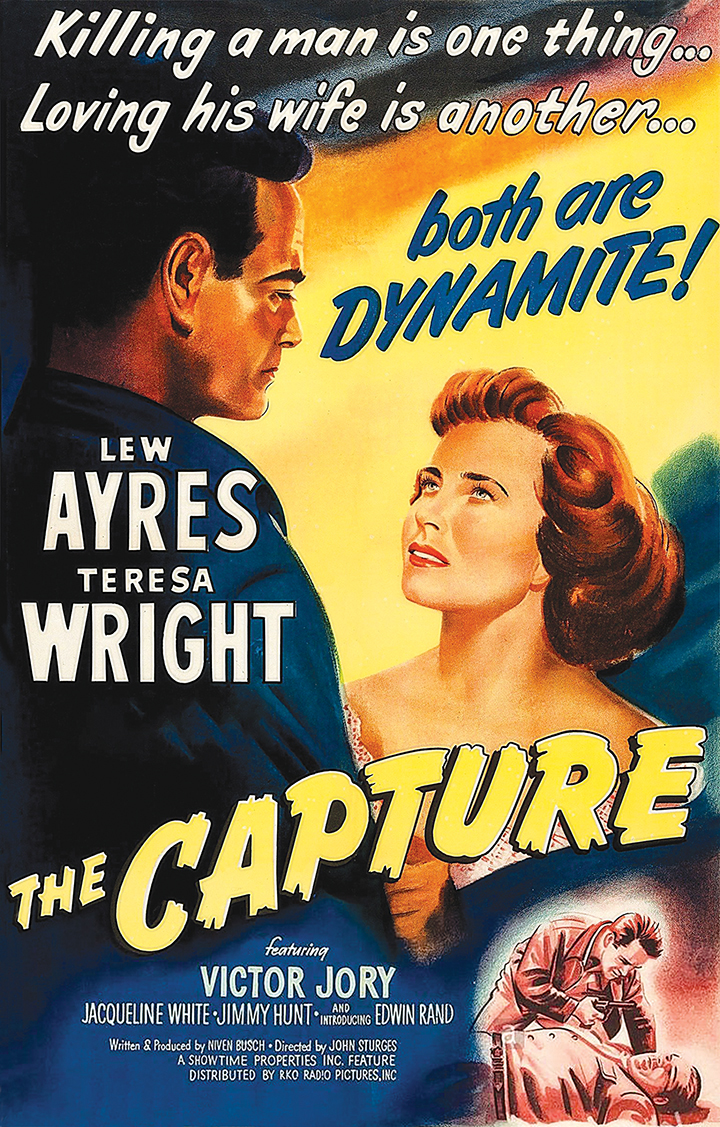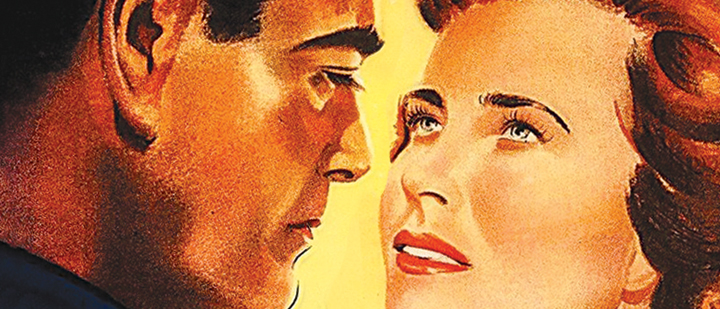
Odd genre marriage: Western noir
‘The Capture: Special Edition’
The Film Detective
$24.95 (Blu-ray), $19.95 (DVD)
91 minutes plus special features
Not rated
By Mark Voger, author
‘Holly Jolly: Celebrating Christmas Past in Pop Culture’
Spoilers follow.
The ethical quandary is an essential generator in every good noir story. John Sturges‘ Western noir “The Capture” (1950) presents two.
Quandary #1: You point a gun at a possibly armed man you’ve been pursuing, and command him to put his hands up. He is some distance away, shouting inaudibly at you, while only putting up one hand. “Both of ’em! Over your head! Get ’em up!” you warn him. When he still fails to raise both hands, you fire, and he goes down. You close in on him, and the shot man says his other arm is broken. “That’s what I was trying to tell you,” he gasps through the pain. When he dies, you are cleared via the “it-was-him-or-me” defense. But you don’t feel good about it.
Quandary #2: You are attracted to the dead man’s widow. She doesn’t know that you are the guy who killed her husband. You give her a fake name, and take a job as a hand on her ranch. You start to flirt with her — and fall for her. What now?
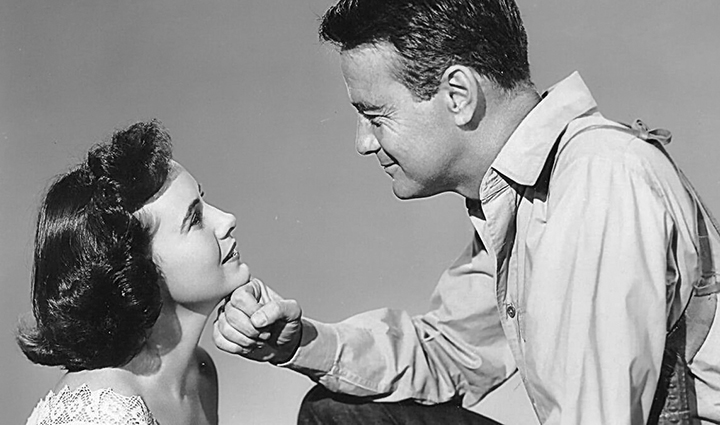
As “The Capture” opens, we seem to be in the Old West. An injured fugitive in Mexico (Lew Ayers) makes his way to the homestead of a priest (Victor Jory), who offers him sanctuary and listens to his story. In a flashback that takes up most of the movie, the first of several switcheroos is revealed as we learn that we are actually in modern times.
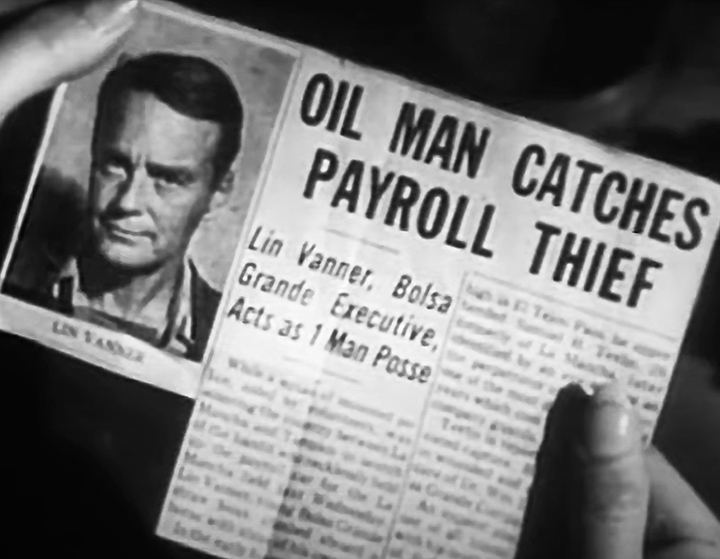 Ayers’ character Lin Vanner is an oil-field foreman who, egged on by his high-spirited fiance Luana (Jacqueline White), pursues a payroll thief who has killed several guards. In the rocky wild, Vanner corners a man he believes to be the killer, a former employee named Sam Tevlin (Edwin Rand). This is the guy Vanner shoots. Both men assume the injury to be non-life-threatening, but they are wrong. Tevlin soon dies in custody of internal bleeding.
Ayers’ character Lin Vanner is an oil-field foreman who, egged on by his high-spirited fiance Luana (Jacqueline White), pursues a payroll thief who has killed several guards. In the rocky wild, Vanner corners a man he believes to be the killer, a former employee named Sam Tevlin (Edwin Rand). This is the guy Vanner shoots. Both men assume the injury to be non-life-threatening, but they are wrong. Tevlin soon dies in custody of internal bleeding.
Everyone congratulates Vanner for catching the thief, but Vanner’s not so sure he got the right man. He refuses the $2,000 reward; breaks up with his fiance; and quits his job. Using an assumed name, Vanner later accepts that ranch-hand job from Tevlin’s widow, Ellen (Teresa Wright, real-life wife of the film’s writer-producer, Niven Busch). Her young son Mike (Jimmy Hunt) isn’t impressed by Vanner, particularly because his boots aren’t “cowboy” enough.
Things are going well — Vanner is an ideal employee — until Ellen rummages through his wallet and finds a newspaper clipping with the headline “OIL MAN CATCHES PAYROLL THIEF,” accompanied by a photo of her new ranch hand.
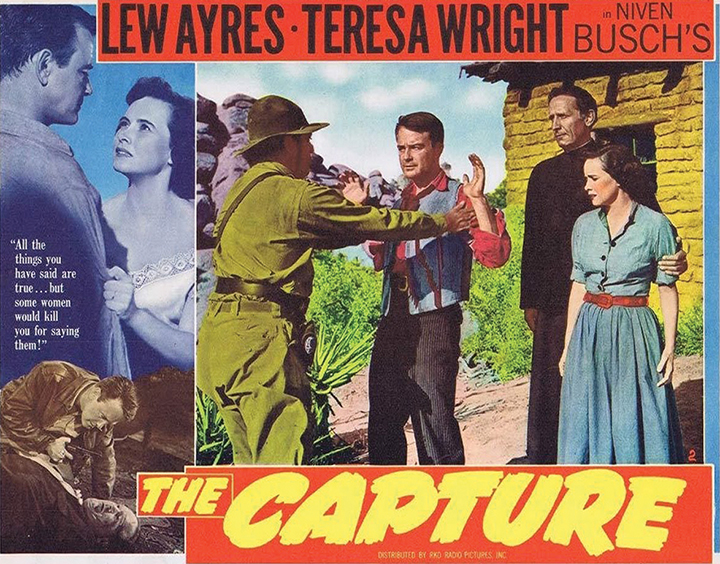
Calling “The Capture” a Western noir is itself a bit of a quandary. Can it be a Western just because, for the most part, it looks like one? Can it be a noir without dark city streets and Venetian blinds — in other words, even though it doesn’t look like one? The answer to both questions is yes. It’s an odd genre marriage, but “The Capture” indeed satifies both milieus.
It’s an intriguing film, if not a perfect one. The scene in which Vanner flirts with Ellen while bathing in a barrel of cold water on a sweltering day, accompanied by silly music, belongs in a “Ma and Pa Kettle” movie. And when Vanner makes a very bad choice near the end of the film — one that explains why he becomes a fugitive — it isn’t altogether credible. (I must stay vague on this plot point.)
Still, Ayers and Wright have believable chemistry. (One wag on the commentary track remarks, accurately, that this movie wouldn’t have worked with, say, Clark Gable and Joan Crawford.) And I’m always interested in watching a Sturges film. Not because of his lauded films such as “The Great Escape,” “Bad Day at Black Rock” or “The Magnificent Seven.” I dig Sturges because of his second-to-last film, “McQ” (1974), starring Duke Wayne brandishing an Ingram 9mm wearing a toupee and a girdle. ‘Coz me, ah’m a hill-billy.
The Film Detective’s release includes the commentary (by C. Courtney Joyner and Henry C. Parke), plus brief featurettes on Wright and Sturges, and a booklet with an essay subtitled “The Doomed Marriage of Teresa Wright and Niven Busch.”
